#ai en marketing
Explore tagged Tumblr posts
Text
Unlock Your Marketing Potential with I.A Marketing - Black Friday Flash Module! 🚀
Unlock Your Marketing Potential with I.A Marketing – Black Friday Flash Module! 🚀 About the Course – Turning Potential into Reality: The I.A Marketing – Black Friday Flash Module is your gateway to excellence. Tailored for visionary entrepreneurs like you, this course offers: 🚀 Purposeful Innovation: Learn to seamlessly integrate Artificial Intelligence into your Marketing strategies, creating…
View On WordPress
#blackfriday#estratégia#agencia de marketing#ai#ai en marketing#Black Friday#branding#Curso I.A Marketing#growth driven design#ia#IA no Marketing#Innovación#inteligencia artificial no marketing#lo que nos espera#marketingdigital#Módulo Relámpago
0 notes
Text
Internet users: I'm not going to drink cocacola products anymore because they used AI in their marketing!
Cocacola, regularly (source):

Update to this post! Cocacola is now a bds boycott target, which is even more reason to boycott!
Death squad source link as text:
https://www.business-humanrights.org/en/latest-news/colombian-union-suing-coca-cola-in-death-squad-case/
BDS source link as text:
https://bdsmovement.net/news/coca-cola-quenching-israel%E2%80%99s-genocidal-soldiers%E2%80%99-thirst
#there are plenty of better reasons to not drink coke products. if youre only boycotting now because of ai though i think youre stupid#id in alt
29K notes
·
View notes
Text
Inteligencia Artificial en Marketing y Publicidad: Herramientas Clave que Definen el Futuro
¿Qué es la Inteligencia Artificial (IA) en Marketing y Publicidad y Para Qué Sirve? La Inteligencia Artificial (IA) en Marketing y Publicidad se refiere a la aplicación de tecnologías y algoritmos de IA (como el aprendizaje automático, el procesamiento del lenguaje natural y el análisis predictivo) para optimizar y automatizar diversas tareas y estrategias de marketing. No se trata de robots…
#Adext AI#Adobe Sensei#AdTech#Albert AI#Amplify.ai#análisis predictivo#Aprendizaje Automático#Automatización de Marketing#Big Data Marketing#Brandwatch#chatbots#Conversica#Cortex#Crimson Hexagon#Drift#Experiencia del Cliente#Generación de Contenido AI#HubSpot Marketing Hub#IA en Marketing#inteligencia artificial#Marketing Conversacional#marketing digital#Marketo Engage#MarTech#Optimización de Campañas#Optimove#Persado#personalización#Phrasee#Publicidad Online
0 notes
Text
Celebrando la Pasión, la Tecnología y la Velocidad: Rossi vs Marquez, Dos Titanes que Revolucionaron MotoGP
Ing. José María Noriega C.A.S. 9 minutos de lectura. Introducción: Los Destinos Entrelazados de Rossi y Márquez Esta confrontación en la pista, marcada por momentos de brillantez, controversia y una palpable tensión, no solo definió una era de MotoGP, sino que también dejó una huella imborrable en la historia del deporte. Un análisis dialéctico en el contexto deportivo implica entender la…
#advertising#AI#análisis de carreras#análisis dialéctico#Cinematografía#Coleccionismo#competitividad en MotoGP#deportes de motor#deportes motor#estrategia en competición#evolución del motociclismo#Excellence#Experto#impacto de Marc Marquez#influencia tecnológica#Ing. José María Noriega#Innovación en Carreras#legado de Rossi#legado en deportes motor#Liberty Media#marcas deportivas#marketing#Mercadotecnia#MotoGP#motor racing#narrativa deportiva#pasión por la velocidad#Publicidad#rivalidad deportiva#Success
1 note
·
View note
Text
Grok AI y el futuro del comercio: Cómo la IA optimiza negocios y aumenta rentabilidad
Grok AI y el futuro del comercio: Cómo la IA optimiza negocios y aumenta rentabilidad Grok AI transforma el comercio moderno con soluciones innovadoras. Descubre su impacto en las prácticas comerciales.
En la era digital, las tecnologías modernas están redefiniendo la forma en que las empresas operan y se relacionan con sus clientes. La inteligencia artificial (IA) se ha convertido en un pilar fundamental en este cambio, ofreciendo soluciones innovadoras que optimizan procesos, mejoran la experiencia del cliente y aumentan la eficiencia operativa. Entre estas soluciones destaca Grok AI, una…
#análisis predictivo#análisis predictivo en comercio#automatización de procesos#automatización en el comercio#comercio moderno#detección de fraudes con IA#eficiencia operativa#experiencia del cliente#gestión de inventarios con IA#Grok AI#IA en el comercio#IA en logística#IA en marketing digital#Innovación Tecnológica#Inteligencia artificial#inteligencia artificial en negocios#inteligencia artificial Grok#optimización con IA#personalización#plataforma de comercio
0 notes
Text
Explorando las IA Más Innovadoras del Momento y Sus Aplicaciones Prácticas
La inteligencia artificial (IA) está transformando la forma en que trabajamos, nos comunicamos y creamos contenido. A continuación, exploraremos algunas de las herramientas de IA más destacadas disponibles en la actualidad, sus características clave y cómo pueden aplicarse en diversas industrias y tareas cotidianas. Si bien una de mis favoritas es ChatGPT, hoy te quiero mostrar algunas que se…
#Aplicaciones prácticas de Adobe Firefly y Jasper en negocios#Cómo optimizar tu calendario con Reclaim AI#Cómo usar herramientas de inteligencia artificial para mejorar la productividad#Creación de voz en off profesional con Murf AI#Edición de video simplificada con Runway y herramientas de IA#Explorando las IA Más Innovadoras del Momento y Sus Aplicaciones Prácticas#Mejores herramientas de IA para marketing y creación de contenido#Personalización de experiencias de cliente con Incivio y otras herramientas de IA#Software para presentaciones inteligentes: Beautiful AI
0 notes
Text
Vitaliteit, Vreugde den Fortuin - VVF-formule voor ondernemers
Begin met de mindset . . .Vitaliteit, Vreugde en Fortuin. Het is goed mogelijk dat je als 55-plusser (met een marge van 10 jaar) binnenkort de stap naar ondernemerschap wilt maken. Het aantal mensen dat op latere leeftijd een bedrijf start, groeit. Het creëren van een winstgevende onderneming, zowel met fysieke als digitale producten, is binnen handbereik. Voordat we een samenwerking aangaan om…
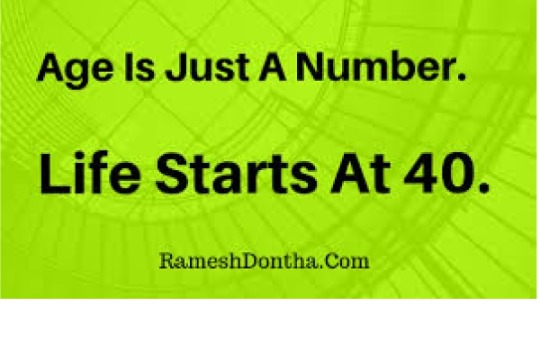
View On WordPress
#eigen bedrijf 5 plus#eigen bedrijf als bijverdienste#eigen bedrijf en AI marketing#eigen bedrijf en kvk#eigen bedrijf starten#eigen bedrijf starten met compagnon#eigen bedrijf starten met idee#eigen bedrijf starten zonder geld#eigen bedrijf zelfstandig
1 note
·
View note
Text
Agencia de Marketing Tijuana
En la era digital actual, el marketing ha evolucionado de manera significativa. Con la proliferación de datos, la automatización y la inteligencia artificial (IA), las empresas están adoptando nuevas estrategias para alcanzar a su audiencia de manera más efectiva y eficiente que nunca. En este contexto, el papel de la IA en el marketing es cada vez más relevante, ofreciendo oportunidades sin precedentes para las marcas que desean destacarse en un mercado competitivo.
Una de las formas en que la IA está revolucionando el marketing es a través de la personalización. Gracias a algoritmos avanzados, las empresas pueden analizar grandes cantidades de datos sobre sus clientes y prospects para entender mejor sus preferencias, comportamientos y necesidades individuales. Esto permite a las marcas crear mensajes y ofertas altamente personalizados que resuenen con su audiencia de una manera más profunda, aumentando así la probabilidad de conversión y fidelización.
Pero la IA no se detiene en la personalización. También está impulsando la automatización de tareas repetitivas y de baja complejidad, liberando el tiempo y los recursos de los profesionales del marketing para enfocarse en actividades más estratégicas y creativas. Desde la programación de publicaciones en redes sociales hasta la optimización de campañas de anuncios en línea, la IA está simplificando los procesos y mejorando la eficiencia en todas las etapas del embudo de ventas.
Un ejemplo destacado de cómo la IA está transformando el marketing es a través de la optimización de motores de búsqueda (SEO). Con algoritmos de aprendizaje automático, los motores de búsqueda pueden comprender mejor el contenido y las intenciones de búsqueda de los usuarios, lo que permite a las marcas mejorar su visibilidad en línea y atraer tráfico orgánico de alta calidad a sus sitios web. Además, la IA también puede ayudar en la identificación de palabras clave relevantes y en la creación de contenido optimizado para SEO, lo que contribuye a un mejor posicionamiento en los resultados de búsqueda.
En el contexto de Tijuana, una ciudad en constante crecimiento y desarrollo empresarial, la importancia del marketing digital y la publicidad no puede subestimarse. Con una población diversa y un mercado competitivo, las empresas locales necesitan estrategias de marketing sólidas para destacarse entre la multitud y alcanzar a su audiencia objetivo de manera efectiva. Es aquí donde entra en juego una agencia de marketing con visión hacia el futuro, como NoSomosAgencia.mx.
NoSomosAgencia.mx no es solo una agencia de marketing tradicional. Con un enfoque en la innovación y la adopción de tecnologías avanzadas como la IA, están liderando el camino hacia el futuro del marketing en Tijuana. Desde la creación de campañas publicitarias altamente segmentadas hasta la implementación de estrategias de contenido personalizado, esta agencia está ayudando a las empresas locales a maximizar su presencia en línea y a alcanzar sus objetivos de marketing de manera más eficiente que nunca.
Al colaborar con NoSomosAgencia.mx, las empresas en Tijuana pueden aprovechar todo el potencial de la IA para mejorar su estrategia de marketing y alcanzar resultados sobresalientes. Ya sea a través de la optimización de motores de búsqueda, la automatización de procesos de marketing o la personalización de contenido, esta agencia tiene las herramientas y la experiencia necesarias para impulsar el éxito de cualquier negocio en el mercado digital actual.
En conclusión, la inteligencia artificial está cambiando la forma en que las empresas abordan el marketing. Desde la personalización hasta la automatización, la IA ofrece oportunidades sin precedentes para mejorar la eficiencia y la efectividad de las estrategias de marketing en Tijuana, una agencia líder como NoSomosAgencia.mx está llevando esta transformación al siguiente nivel, ayudando a las empresas locales a destacarse en un mercado competitivo y en constante evolución. Con su enfoque innovador y su compromiso con la excelencia, están allanando el camino hacia el futuro del marketing en la región.
#marketing en tijuana#agencia de marketing en tijuana#marketing AI#AI Marketing#nosomosagencia.mx#nosomosagencia tijuana
1 note
·
View note
Text
Just struck by the fact that, in 2018, climate scientists posted a dire warning that the Earth had just twelve years to cut greenhouse gas emissions to avoid catastrophic global heating. There were protests; demonstrations. We have now breezed through more than half of that time, with nothing to show for it but millions of more tonnes of CO2 wasted on crypto mining and AI scams. The world nears the sixth mass extinction in its entire geological history and oil production is near record highs.
Struck also by the fact that, in 2020, there were mass protests against police murders of Black people; like, mass mass protests. "Defund the police" they said. "Abolish the police." Police budgets are up. Black people still get murdered by the cops en masse.
And then, this past year, there were massive protests against the genocide in Gaza. There were occupations of university campuses, there were protests outside of the institutions that enabled the mass murder in Palestine. Macklemore did a song about it, a good one. And the genocide continues apace.
On issue after issue, you can see the same pattern. Surely the massacre of children at Sandy Hook would drive sensible gun laws! Nope. Surely outrage over the Rana Plaza collapse in Bangladesh would drive changes in labour practices! Nope. Surely the #Occupy protests in 2011 would drive wealth redistribution! Nope. Surely the BP oil spill in the Gulf of Mexico would drive better environmental regulations. Nope. Surely the 2008 financial crash would drive regulation of the stock market. Nope. Surely the record protests against the US Invasion of Iraq would move the needle, even a little bit. Nope. Over and over and over again, we see the capitalist elite (let us be frank) raping the world, over and over and over again, we see mass outpourings of rage and disgust in the streets, and over and over and over again, we see them shrug it off, fuck their mistresses, and go golfing.
And then, some guy who may or may not be named Luigi goes and shoots an insurance CEO to death. And suddenly they can't shrug this off. Some companies back down on their plans to make health insurance in the USA even worse; we're treated to panicked editorials in elite publications talking about how celebration of the murder showcases our culture of moral decay (as if this isn't a society that has been either denying or actively celebrating the most well documented genocide in history for the last 15 months; as if there aren't near daily shootings in American schools, occurring so often that they barely even make the news anymore; as if the dead CEO hadn't presided over a company that spread misery and death for the millions as a matter of business as usual); companies beef up security, hide the names of their CEOs. There is, in short, an actual response (though it remains to be seen how it will play out in the long run, but still an actual response). Decades of mass, peaceful protest, and they just ignore it. One guy with a gun, and suddenly it's the end of the fucking world.
What lesson are we supposed to draw from this?
776 notes
·
View notes
Text
DAY 6274
Jalsa, Mumbai Aopr 20, 2025 Sun 11:17 pm
🪔 ,
April 21 .. birthday greetings and happiness to Ef Mousumi Biswas .. and Ef Arijit Bhattacharya from Kolkata .. 🙏🏽❤️🚩.. the wishes from the Ef family continue with warmth .. and love 🌺
The AI debate became the topic of discussion on the dining table ad there were many potent points raised - bith positive and a little indifferent ..
The young acknowledged it with reason and able argument .. some of the mid elders disagreed mildly .. and the end was kind of neutral ..
Blessed be they of the next GEN .. their minds are sorted out well in advance .. and why not .. we shall not be around till time in advance , but they and their progeny shall .. as has been the norm through generations ...
The IPL is now the greatest attraction throughout the day .. particularly on the Sunday, for the two on the day .. and there is never a debate on that ..
🤣
.. and I am most appreciative to read the comments from the Ef on the topic of the day - AI .. appreciative because some of the reactions and texts are valid and interesting to know .. the aspect expressed in all has a legitimate argument and that is most healthy ..
I am happy that we could all react to the Blog contents in the manner they have done .. my gratitude .. such a joy to get different views , valid and meaningful ..
And it is not the end of the day or the debate .. some impressions of the Gen X and some from the just passed Gen .. and some that were never ever the Gen are interesting as well :
The Printing Press (15th Century)
Fear: Scribes, monks, and elites thought it would destroy the value of knowledge, lead to mass misinformation, and eliminate jobs. Reality: It democratized knowledge, spurred the Renaissance and Reformation, and created entirely new industries—publishing, journalism, and education.
⸻
Industrial Revolution (18th–19th Century)
Fear: Machines would replace all human labor. The Luddites famously destroyed machinery in protest. Reality: Some manual labor jobs were displaced, but the economy exploded with new roles in manufacturing, logistics, engineering, and management. Overall employment and productivity soared.
⸻
Automobiles (Early 20th Century)
Fear: People feared job losses for carriage makers, stable hands, and horseshoe smiths. Cities worried about traffic, accidents, and social decay. Reality: The car industry became one of the largest employers in the world. It reshaped economies, enabled suburbia, and created new sectors like travel, road infrastructure, and auto repair.
⸻
Personal Computers (1980s)
Fear: Office workers would be replaced by machines; people worried about becoming obsolete. Reality: Computers made work faster and created entire industries: IT, software development, cybersecurity, and tech support. It transformed how we live and work.
⸻
The Internet (1990s)
Fear: It would destroy jobs in retail, publishing, and communication. Some thought it would unravel social order. Reality: E-commerce, digital marketing, remote work, and the creator economy now thrive. It connected the world and opened new opportunities.
⸻
ATMs (1970s–80s)
Fear: Bank tellers would lose their jobs en masse. Reality: ATMs handled routine tasks, but banks actually hired more tellers for customer service roles as they opened more branches thanks to reduced transaction costs.
⸻
Robotics & Automation (Factory work, 20th century–today)
Fear: Mass unemployment in factories. Reality: While some jobs shifted or ended, others evolved—robot maintenance, programming, design. Productivity gains created new jobs elsewhere.
The fear is not for losing jobs. It is the compromise of intellectual property and use without compensation. This case is slightly different.
I think AI will only make humans smarter. If we use it to our advantage.
That’s been happening for the last 10 years anyway
Not something new
You can’t control that in this day and age
YouTube & User-Generated Content (mid-2000s onward)
Initial Fear: When YouTube exploded, many in the entertainment industry panicked. The fear was that copyrighted material—music, TV clips, movies—would be shared freely without compensation. Creators and rights holders worried their content would be pirated, devalued, and that they’d lose control over distribution.
What Actually Happened: YouTube evolved to protect IP and monetize it through systems like Content ID, which allows rights holders to:
Automatically detect when their content is used
Choose to block, track, or monetize that usage
Earn revenue from ads run on videos using their IP (even when others post it)
Instead of wiping out creators or studios, it became a massive revenue stream—especially for musicians, media companies, and creators. Entire business models emerged around fair use, remixes, and reactions—with compensation built in.
Key Shift: The system went from “piracy risk” to “profit partner,” by embracing tech that recognized and enforced IP rights at scale.
This lead to higher profits and more money for owners and content btw
You just have to restructure the compensation laws and rewrite contracts
It’s only going to benefit artists in the long run
Yes
They can IP it
That is the hope
It’s the spread of your content and material without you putting a penny towards it
Cannot blindly sign off everything in contracts anymore. Has to be a lot more specific.
Yes that’s for sure
“Automation hasn’t erased jobs—it’s changed where human effort goes.”
Another good one is “hard work beats talent when talent stops working hard”
Which has absolutely nothing to with AI right now but 🤣
These ladies and Gentlemen of the Ef jury are various conversational opinions on AI .. I am merely pasting them for a view and an opinion ..
And among all the brouhaha about AI .. we simply forgot the Sunday well wishers .. and so ..



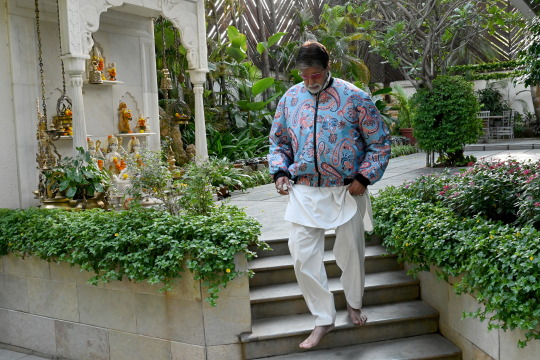
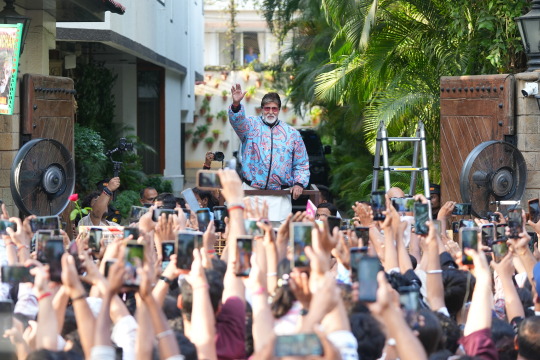

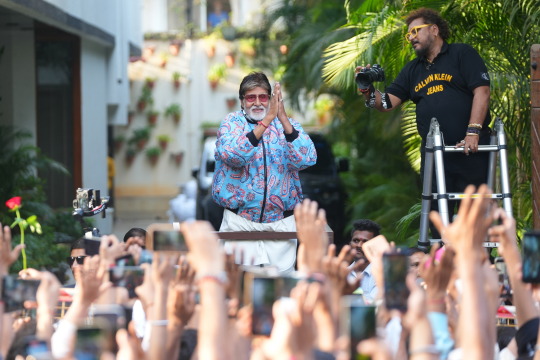






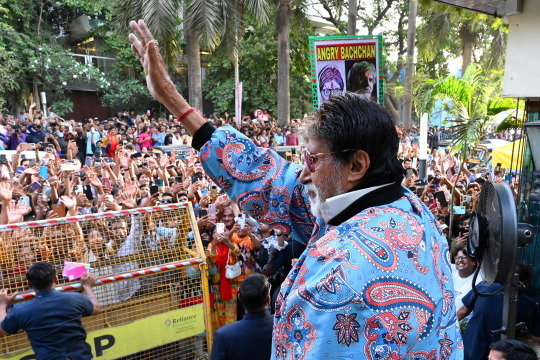
my love and the length be of immense .. pardon

Amitabh Bachchan
107 notes
·
View notes
Text
Elevando Seu Marketing com o Curso I.A Marketing - Módulo Relâmpago da Black Friday! 🚀
¡Bienvenido a la revolución del Marketing Digital! Como fundador de IdeiasBlah.com.br y con más de 20 años de experiencia en Marketing, Ventas y Coordinación de Equipos, estás a punto de dar un paso crucial para transformar tus estrategias de marketing y impulsar tus resultados. ¡Inscríbete Ahora y Sé el Arquitecto de tu Propio Éxito! 🚀 Sobre mí – Una Jornada de Éxito: Desde los primeros pasos en…

View On WordPress
#blackfriday#estratégia#agencia de marketing#ai#ai en marketing#Black Friday#branding#Curso I.A Marketing#growth driven design#ia#IA no Marketing#Innovación#inteligencia artificial no marketing#lo que nos espera#marketingdigital#Módulo Relámpago
0 notes
Text
Apple to EU: “Go fuck yourself”
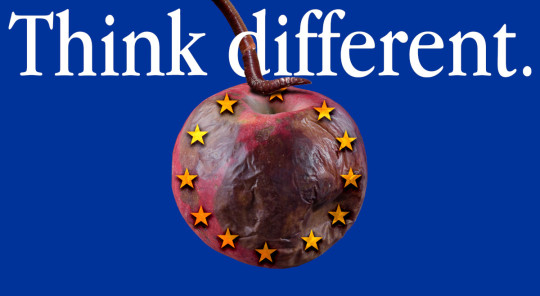
If you'd like an essay-formatted version of this post to read or share, here's a link to it on pluralistic.net, my surveillance-free, ad-free, tracker-free blog:
https://pluralistic.net/2024/02/06/spoil-the-bunch/#dma

There's a strain of anti-anti-monopolist that insists that they're not pro-monopoly – they're just realists who understand that global gigacorporations are too big to fail, too big to jail, and that governments can't hope to rein them in. Trying to regulate a tech giant, they say, is like trying to regulate the weather.
This ploy is cousins with Jay Rosen's idea of "savvying," defined as: "dismissing valid questions with the insider's, 'and this surprises you?'"
https://twitter.com/jayrosen_nyu/status/344825874362810369?lang=en
In both cases, an apologist for corruption masquerades as a pragmatist who understands the ways of the world, unlike you, a pathetic dreamer who foolishly hopes for a better world. In both cases, the apologist provides cover for corruption, painting it as an inevitability, not a choice. "Don't hate the player. Hate the game."
The reason this foolish nonsense flies is that we are living in an age of rampant corruption and utter impunity. Companies really do get away with both literal and figurative murder. Governments really do ignore horrible crimes by the rich and powerful, and fumble what rare, few enforcement efforts they assay.
Take the GDPR, Europe's landmark privacy law. The GDPR establishes strict limitations of data-collection and processing, and provides for brutal penalties for companies that violate its rules. The immediate impact of the GDPR was a mass-extinction event for Europe's data-brokerages and surveillance advertising companies, all of which were in obvious violation of the GDPR's rules.
But there was a curious pattern to GDPR enforcement: while smaller, EU-based companies were swiftly shuttered by its provisions, the US-based giants that conduct the most brazen, wide-ranging, illegal surveillance escaped unscathed for years and years, continuing to spy on Europeans.
One (erroneous) way to look at this is as a "compliance moat" story. In that story, GDPR requires a bunch of expensive systems that only gigantic companies like Facebook and Google can afford. These compliance costs are a "capital moat" – a way to exclude smaller companies from functioning in the market. Thus, the GDPR acted as an anticompetitive wrecking ball, clearing the field for the largest companies, who get to operate without having to contend with smaller companies nipping at their heels:
https://www.techdirt.com/2019/06/27/another-report-shows-gdpr-benefited-google-facebook-hurt-everyone-else/
This is wrong.
Oh, compliance moats are definitely real – think of the calls for AI companies to license their training data. AI companies can easily do this – they'll just buy training data from giant media companies – the very same companies that hope to use models to replace creative workers with algorithms. Create a new copyright over training data won't eliminate AI – it'll just confine AI to the largest, best capitalized companies, who will gladly provide tools to corporations hoping to fire their workforces:
https://pluralistic.net/2023/02/09/ai-monkeys-paw/#bullied-schoolkids
But just because some regulations can be compliance moats, that doesn't mean that all regulations are compliance moats. And just because some regulations are vigorously applied to small companies while leaving larger firms unscathed, it doesn't follow that the regulation in question is a compliance moat.
A harder look at what happened with the GDPR reveals a completely different dynamic at work. The reason the GDPR vaporized small surveillance companies and left the big companies untouched had nothing to do with compliance costs. The Big Tech companies don't comply with the GDPR – they just get away with violating the GDPR.
How do they get away with it? They fly Irish flags of convenience. Decades ago, Ireland started dabbling with offering tax-havens to the wealthy and mobile – they invented the duty-free store:
https://en.wikipedia.org/wiki/Duty-free_shop#1947%E2%80%931990:_duty_free_establishment
Capturing pennies from the wealthy by helping them avoid fortunes they owed in taxes elsewhere was terribly seductive. In the years that followed, Ireland began aggressively courting the wealthy on an industrial scale, offering corporations the chance to duck their obligations to their host countries by flying an Irish flag of convenience.
There are other countries who've tried this gambit – the "treasure islands" of the Caribbean, the English channel, and elsewhere – but Ireland is part of the EU. In the global competition to help the rich to get richer, Ireland had a killer advantage: access to the EU, the common market, and 500m affluent potential customers. The Caymans can hide your money for you, and there's a few super-luxe stores and art-galleries in George Town where you can spend it, but it's no Champs Elysees or Ku-Damm.
But when you're competing with other countries for the pennies of trillion-dollar tax-dodgers, any wins can be turned into a loss in an instant. After all, any corporation that is footloose enough to establish a Potemkin Headquarters in Dublin and fly the trídhathach can easily up sticks and open another Big Store HQ in some other haven that offers it a sweeter deal.
This has created a global race to the bottom among tax-havens to also serve as regulatory havens – and there's a made-in-the-EU version that sees Ireland, Malta, Cyprus and sometimes the Netherlands competing to see who can offer the most impunity for the worst crimes to the most awful corporations in the world.
And that's why Google and Facebook haven't been extinguished by the GDPR while their rivals were. It's not compliance moats – it's impunity. Once a corporation attains a certain scale, it has the excess capital to spend on phony relocations that let it hop from jurisdiction to jurisdiction, chasing the loosest slots on the strip. Ireland is a made town, where the cops are all on the take, and two thirds of the data commissioner's rulings are eventually overturned by the federal court:
https://www.iccl.ie/digital-data/iccl-2023-gdpr-report/
This is a problem among many federations, not just the EU. The US has its onshore-offshore tax- and regulation-havens (Delaware, South Dakota, Texas, etc), and so does Canada (Alberta), and some Swiss cantons are, frankly, batshit:
https://lenews.ch/2017/11/25/swiss-fact-some-swiss-women-had-to-wait-until-1991-to-vote/
None of this is to condemn federations outright. Federations are (potentially) good! But federalism has a vulnerability: the autonomy of the federated states means that they can be played against each other by national or transnational entities, like corporations. This doesn't mean that it's impossible to regulate powerful entities within a federation – but it means that federal regulation needs to account for the risk of jurisdiction-shopping.
Enter the Digital Markets Act, a new Big Tech specific law that, among other things, bans monopoly app stores and payment processing, through which companies like Apple and Google have levied a 30% tax on the entire app market, while arrogating to themselves the right to decide which software their customers may run on their own devices:
https://pluralistic.net/2023/06/07/curatorial-vig/#app-tax
Apple has responded to this regulation with a gesture of contempt so naked and broad that it beggars belief. As Proton describes, Apple's DMA plan is the very definition of malicious compliance:
https://proton.me/blog/apple-dma-compliance-plan-trap
Recall that the DMA is intended to curtail monopoly software distribution through app stores and mobile platforms' insistence on using their payment processors, whose fees are sky-high. The law is intended to extinguish developer agreements that ban software creators from informing customers that they can get a better deal by initiating payments elsewhere, or by getting a service through the web instead of via an app.
In response, Apple, has instituted a junk fee it calls the "Core Technology Fee": EUR0.50/install for every installation over 1m. As Proton writes, as apps grow more popular, using third-party payment systems will grow less attractive. Apple has offered discounts on its eye-watering payment processing fees to a mere 20% for the first payment and 13% for renewals. Compare this with the normal – and far, far too high – payment processing fees the rest of the industry charges, which run 2-5%. On top of all this, Apple has lied about these new discounted rates, hiding a 3% "processing" fee in its headline figures.
As Proton explains, paying 17% fees and EUR0.50 for each subscriber's renewal makes most software businesses into money-losers. The only way to keep them afloat is to use Apple's old, default payment system. That choice is made more attractive by Apple's inclusion of a "scare screen" that warns you that demons will rend your soul for all eternity if you try to use an alternative payment scheme.
Apple defends this scare screen by saying that it will protect users from the intrinsic unreliability of third-party processors, but as Proton points out, there are plenty of giant corporations who get to use their own payment processors with their iOS apps, because Apple decided they were too big to fuck with. Somehow, Apple can let its customers spend money Uber, McDonald's, Airbnb, Doordash and Amazon without terrorizing them about existential security risks – but not mom-and-pop software vendors or publishers who don't want to hand 30% of their income over to a three-trillion-dollar company.
Apple has also reserved the right to cancel any alternative app store and nuke it from Apple customers' devices without warning, reason or liability. Those app stores also have to post a one-million euro line of credit in order to be considered for iOS. Given these terms, it's obvious that no one is going to offer a third-party app store for iOS and if they did, no one would list their apps in it.
The fuckery goes on and on. If an app developer opts into third-party payments, they can't use Apple's payment processing too – so any users who are scared off by the scare screen have no way to pay the app's creators. And once an app creator opts into third party payments, they can never go back – the decision is permanent.
Apple also reserves the right to change all of these policies later, for the worse ("I am altering the deal. Pray I don't alter it further" -D. Vader). They have warned developers that they might change the API for reporting external sales and revoke developers' right to use alternative app stores at its discretion, with no penalties if that screws the developer.
Apple's contempt extends beyond app marketplaces. The DMA also obliges Apple to open its platform to third party browsers and browser engines. Every browser on iOS is actually just Safari wrapped in a cosmetic skin, because Apple bans third-party browser-engines:
https://pluralistic.net/2022/12/13/kitbashed/#app-store-tax
But, as Mozilla puts it, Apple's plan for this is "as painful as possible":
https://www.theverge.com/2024/1/26/24052067/mozilla-apple-ios-browser-rules-firefox
For one thing, Apple will only allow European customers to run alternative browser engines. That means that Firefox will have to "build and maintain two separate browser implementations — a burden Apple themselves will not have to bear."
(One wonders how Apple will treat Americans living in the EU, whose Apple accounts still have US billing addresses – these people will still be entitled to the browser choice that Apple is grudgingly extending to Europeans.)
All of this sends a strong signal that Apple is planning to run the same playbook with the DMA that Google and Facebook used on the GDPR: ignore the law, use lawyerly bullshit to chaff regulators, and hope that European federalism has sufficiently deep cracks that it can hide in them when the enforcers come to call.
But Apple is about to get a nasty shock. For one thing, the DMA allows wronged parties to start their search for justice in the European federal court system – bypassing the Irish regulators and courts. For another, there is a global movement to check corporate power, and because the tech companies do the same kinds of fuckery in every territory, regulators are able to collaborate across borders to take them down.
Take Apple's app store monopoly. The best reference on this is the report published by the UK Competition and Markets Authority's Digital Markets Unit:
https://assets.publishing.service.gov.uk/media/63f61bc0d3bf7f62e8c34a02/Mobile_Ecosystems_Final_Report_amended_2.pdf
The devastating case that the DMU report was key to crafting the DMA – but it also inspired a US law aimed at forcing app markets open:
https://www.congress.gov/bill/117th-congress/senate-bill/2710
And a Japanese enforcement action:
https://asia.nikkei.com/Business/Technology/Japan-to-crack-down-on-Apple-and-Google-app-store-monopolies
And action in South Korea:
https://www.reuters.com/technology/skorea-considers-505-mln-fine-against-google-apple-over-app-market-practices-2023-10-06/
These enforcers gather for annual meetings – I spoke at one in London, convened by the Competition and Markets Authority – where they compare notes, form coalitions, and plan strategy:
https://www.eventbrite.co.uk/e/cma-data-technology-and-analytics-conference-2022-registration-308678625077
This is where the savvying breaks down. Yes, Apple is big enough to run circles around Japan, or South Korea, or the UK. But when those countries join forces with the EU, the USA and other countries that are fed up to the eyeballs with Apple's bullshit, the company is in serious danger.
It's true that Apple has convinced a bunch of its customers that buying a phone from a multi-trillion-dollar corporation makes you a member of an oppressed religious minority:
https://pluralistic.net/2024/01/12/youre-holding-it-wrong/#if-dishwashers-were-iphones
Some of those self-avowed members of the "Cult of Mac" are willing to take the company's pronouncements at face value and will dutifully repeat Apple's claims to be "protecting" its customers. But even that credulity has its breaking point – Apple can only poison the well so many times before people stop drinking from it. Remember when the company announced a miraculous reversal to its war on right to repair, later revealed to be a bald-faced lie?
https://pluralistic.net/2023/09/22/vin-locking/#thought-differently
Or when Apple claimed to be protecting phone users' privacy, which was also a lie?
https://pluralistic.net/2022/11/14/luxury-surveillance/#liar-liar
The savvy will see Apple lying (again) and say, "this surprises you?" No, it doesn't surprise me, but it pisses me off – and I'm not the only one, and Apple's insulting lies are getting less effective by the day.

Image: Alex Popovkin, Bahia, Brazil from Brazil (modified) https://commons.wikimedia.org/wiki/File:Annelid_worm,_Atlantic_forest,_northern_littoral_of_Bahia,_Brazil_%2816107326533%29.jpg
CC BY 2.0 https://creativecommons.org/licenses/by/2.0/deed.en
--
Hubertl (modified) https://commons.wikimedia.org/wiki/File:2015-03-04_Elstar_%28apple%29_starting_putrefying_IMG_9761_bis_9772.jpg
CC BY-SA 4.0 https://creativecommons.org/licenses/by-sa/4.0/deed.en
#pluralistic#apple#malicious compliance#dma#digital markets act#eu#european union#federalism#corporatism#monopolies#trustbusting#regulation#protonmail#junk fees#cult of mac#interoperability#browser wars#firefox#mozilla#webkit#browser engines
605 notes
·
View notes
Text
Inteligencia Artificial en Marketing y Publicidad: Herramientas Clave que Definen el Futuro
¿Qué es la Inteligencia Artificial (IA) en Marketing y Publicidad y Para Qué Sirve? La Inteligencia Artificial (IA) en Marketing y Publicidad se refiere a la aplicación de tecnologías y algoritmos de IA (como el aprendizaje automático, el procesamiento del lenguaje natural y el análisis predictivo) para optimizar y automatizar diversas tareas y estrategias de marketing. No se trata de robots…
#Adext AI#Adobe Sensei#AdTech#Albert AI#Amplify.ai#análisis predictivo#Aprendizaje Automático#Automatización de Marketing#Big Data Marketing#Brandwatch#chatbots#Conversica#Cortex#Crimson Hexagon#Drift#Experiencia del Cliente#Generación de Contenido AI#HubSpot Marketing Hub#IA en Marketing#inteligencia artificial#Marketing Conversacional#marketing digital#Marketo Engage#MarTech#Optimización de Campañas#Optimove#Persado#personalización#Phrasee#Publicidad Online
0 notes
Text
Entre el Poder y la Transformación: Un Análisis Dialéctico de la Nueva Geopolítica en América del Norte
Ing. José María Noriega C.A.S. La evolución de las relaciones comerciales y estratégicas entre México, Estados Unidos y China constituye uno de los procesos más significativos y transformadores del escenario geopolítico actual. Ai Art by Author En este análisis dialéctico, examino el choque de paradigmas que se vive actualmente en América del Norte, donde convergen intereses geográficos,…
#advertising#AI#alianzas estratégicas#Claudia Sheinbaum#comercio bilateral#Donald Trump#economía mexicana#energías renovables#estrategia económica#Excellence#Experto#geopolítica América del Norte#Hutchison Whampoa#industria automotriz#infraestructura portuaria#Ing José Maria Noriega#inversión china en México#inversión extranjera directa#litio en México#manufactura#marketing#Mercadotecnia#nearshoring#política comercial#Publicidad#relaciones México-China#Ruta de la Seda#Success#T-MEC#Tecnología
0 notes
Text
DİGİTALE TREND - MEGA+

Linkbuilding Expertise en Uitbesteden - Digitale Trends
In de digitale marketing van vandaag bestaat er een effectieve strategie om uw online aanwezigheid te versterken en uw rankings te verhogen: linkbuilding. Deze strategie is essentieel voor het vergroten van de populariteit van uw website en het verbeteren van uw ranking in zoekmachines.
Wat is linkbuilding-expertise?
Experts op het gebied van linkbuilding zijn professionals die links uit externe bronnen beheren om de paginaautoriteit van uw website te vergroten. Deze links vergroten de geloofwaardigheid van uw site en sturen signalen naar zoekmachines die kwaliteitsinhoud aangeven.
Linkbuilding Uitbesteden: waarom is het belangrijk?
Het linkbuildingproces kan een complexe taak zijn, en bedrijfseigenaren zoeken vaak hulp die hierin gespecialiseerd is. Door het uitbesteden van linkbuilding kan een deskundig team deze taak professioneel uitvoeren. Dit helpt bedrijfseigenaren zich te concentreren op hun vakgebied en het link building specialist ervaren handen over te laten.
Linkbuildingstrategie voor digitale trends
De linkbuildingstrategie voordigitaletrend.nl moet het delen van originele en hoogwaardige inhoud omvatten. Het strategisch gebruiken van trefwoorden is belangrijk om de doelgroep aan te trekken en sterke signalen naar zoekmachines te sturen. Bovendien moet ervoor worden gezorgd dat de website zijn concurrentievoordeel behoudt door interactieve inhoud en trends in de branche te volgen.
Conclusie
Link building uitbesteden is een integraal onderdeel van succesvol zijn in ai marketing. Digital Trends kan de geloofwaardigheid en online aanwezigheid van websites vergroten door samen te werken met een deskundig linkbuilding-team.
736 notes
·
View notes
Text
Ethics and GenAI, the Justification parade.
Here are some of the top current hits from the pro-GenAI people.
It's not evil as long as it's not done to me.
It's a I'm fine with Gen AI stealing from other people, en masse, but as long as it doesn't steal from ME, it's ethically fine for me to use it.
Uhhhh....
2. It's stealing from other people anyway, so I may as well steal from them too.
Imperialism. So imperialism was A-OK. You see, everyone else was doing it at the time, so I may as well too. This makes you Thomas Jefferson. He was like, I know slavery is wrong, bro, but you know, I gotta have my slaves and my Sally Hemmings.
3. But I'm poor. Like really poor.
So stealing from other poor people makes it A-OK? You don't want to steal from the rich and punch upwards, you want HG Wells vision of the future to be true.
You can get editing for free, if you're patient, kind and generous yourself.
You can get art for 10 sometimes 20 bucks. Or you can simply spend the time to learn. The hardest part of any cover is the typography. You can have a really beautiful cover with well-set type. I posted tutorials. For. Free. Artists share their knowledge. It's only the time you take to learn. And when you learn, you'll create a cover that's far more unique and stands out in the market than if you steal.
4. It's not going to stop anyway...
Other evil deeds in the world are probably not going to stop either, does that mean one should do them. People steal all of the time. People steal my packages in my building. Does that mean I should do it too? Or should I do kind things like make sure my neighbors get the packages they are owed? Should I take action against it.
5. But it's like really mean and shit to harass people who are using genAI.
If someone is being a broker for an art thief, yes, you should let them know if they are doing it wittingly or unwittingly.
The AI bubble was going to break (https://www.youtube.com/watch?v=M3U5UVyGTuQ), but then they fucking forced it back into computers. So no. I, who know technology, can program (a bit shittily), have every right to tell you that using AI is bad for your book, bad for creativity, and bad for you.
Conclusion
I've solidly mocked the hell out AI before. Because it is a law of averages, and the average humanity is not amazing. It is boring, often wrong, and never unique like creativity demands we are. But individual and the collective of humanity can be extraordinary, if we put our minds to it.
If you use the crutch of AI to give you all of your writing advice, all of your research, to never really think how to do things DIFFERENTLY, how to CHANGE what is in front of you, How ANALYZE your information, you give into the humdrum of complacency, and instead of AI being the robot, you becomes the nice conforming drone.
Creativity is the antithesis of averages, or complacency, which is why I love my fellow artist. I refuse to use crutches. I love my fellow human more than the GenAI. I love the individuality, the uniqueness, and I think humanity is better than the mean it spits at us, be it racism, sexism, violence, conflict, or simply a load of wrong. I want to celebrate the right thing in my art: The craft and the ingenuity of humanity in the right way.
BTW, I gave Deepseek a quick and brief go around to see if it knew anything, and it was also very wrong. Like multitudes of wrong. (I expected as much since I gave it a niche question I know the answer to, but the public doesn't)
I ended up finding the answer myself with a lot of elbow grease (and I found a not average way to find the answer), but GenAI would teach you to give up and have no tenacity. And I can't abide by that. Why rob yourself of the plot bunnies to come? That's why you are getting stuck. Enjoy the journey to the answer. Your brain is 38 trillion times stronger than our current computers. Enjoy that, because it also burns less energy than a GenAI machine. https://www.crucial.com/blog/technology/how-does-the-human-brain-compare-to-a-computer
The human brain likes novelty. https://www.ciis.edu/news/novelty-keeps-your-brain-healthy
So keep your brain healthy and make your novel, well, novel, not human average. Find a solution to the problem you posed to yourself in a not average way. Because I guarantee you, that will be far more engaging to read, to enjoy, to see, to experience than anything that the average of humanity has ever come up with. Be not normal. And in that, you are creative.
35 notes
·
View notes